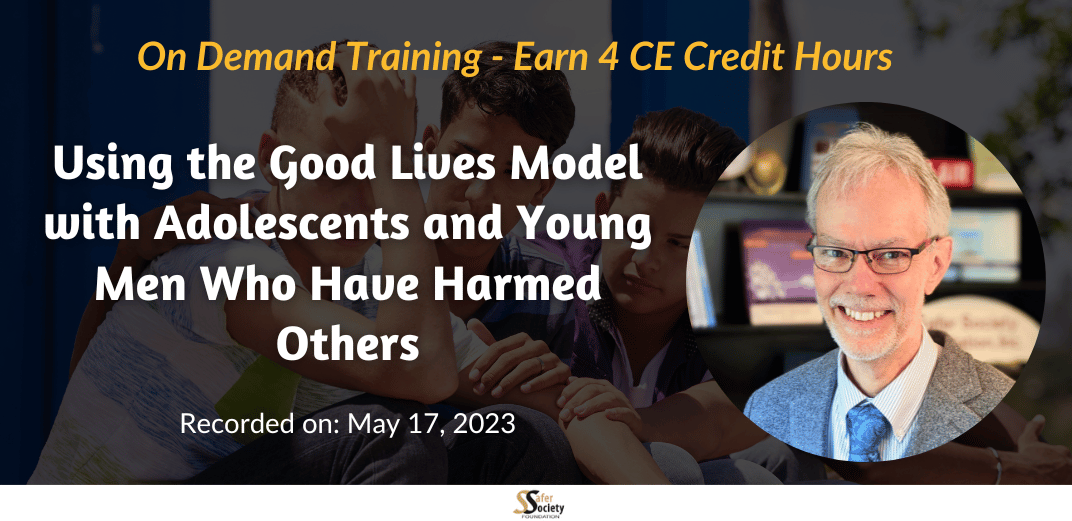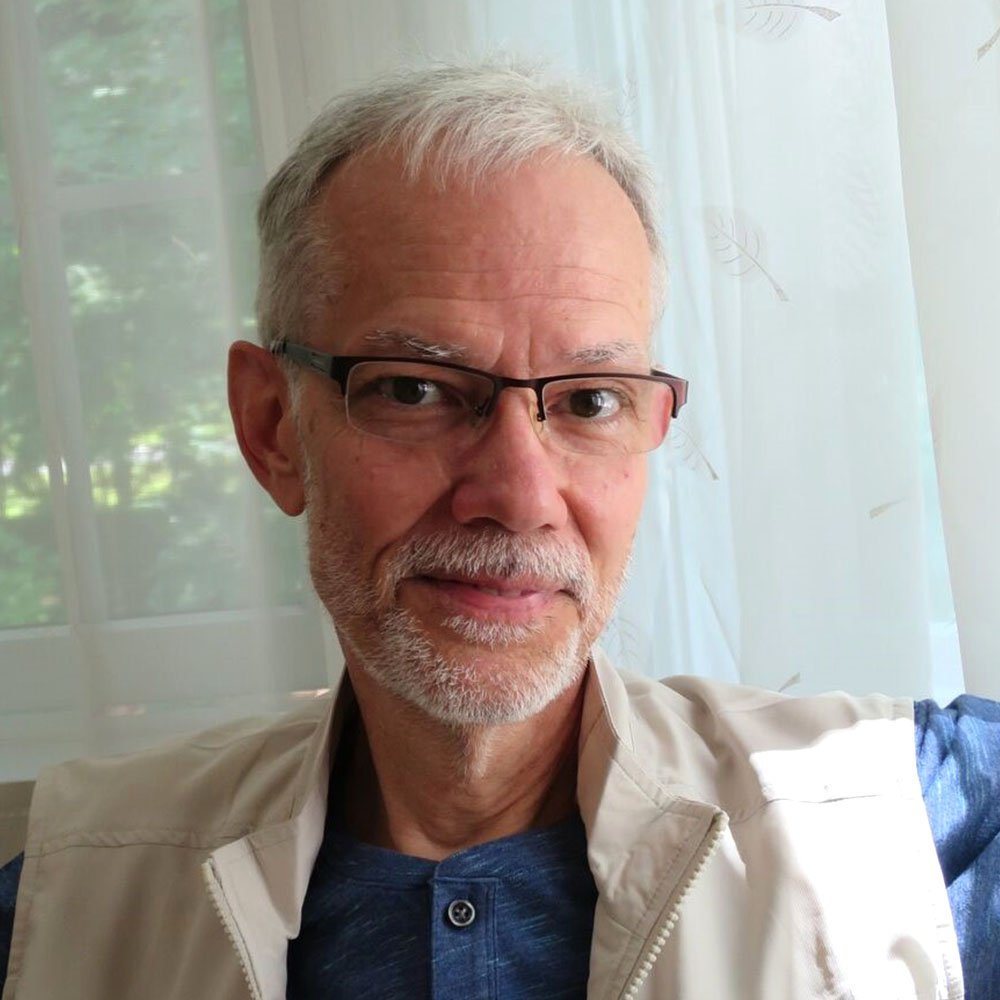
Using the Good Lives Model with Adolescents and Young Men Who Have Harmed Others
Already purchased an On Demand training?
Click here to access your Safer Society On-Demand Training Center account.
This training provides information on applying the Good Lives Model (GLM) in work with adolescents whose behaviors have caused harm to others (including sexual and non-sexual violence). The GLM is a strengths-based rehabilitation practice framework that augments the risk, need, and responsivity principles of effective correctional intervention through its focus on assisting clients to develop and implement meaningful life plans that are incompatible with future offending. Originally developed as a rehabilitation framework for use with adults who have harmed others, this workshop focuses on how the GLM—when properly adapted—can be used with adolescents and young men.
This training closely examines many of its individual tenets (e.g., approach goals, primary human goods). Consideration is given to family involvement and how the etiology of harmful behaviors often results from developmental adversity and challenges in attaining specific goals that are common to all human beings.
Training topics include:
- Overview of what works in treatment
- Principles of effective intervention
- Good Lives Model core principles
- Primary human goods” and “good life goals”
- Obstacles to a “good life plan”
- Case examples
- Implementation considerations
1) Describe the primary human goods in the Good Lives Model
2) Explain the linkage between risk factors and approach-oriented treatment goals
3) Utilize “approach goals” in treatment
4) Identify four obstacles to achieving one’s “good life goals”
5) Describe two components of one’s internal motivation to change
Audience
This training is primarily for professionals who work with adolescents and young men who have engaged in harmful behaviors, including sexual and non-sexual violence. This includes therapists, counselors, case managers, social workers, probation and parole officers, educators, and other professionals who work with at-risk youths.
Content Level
Disclosure
Continuing Education Approval
American Psychological Association (APA)
Safer Society Foundation, Inc. is approved by the American Psychological Association (APA) to sponsor continuing education for psychologists. Safer Society Foundation, Inc. maintains responsibility for this program and its content.
Who's Presenting

David Prescott, LICSW, ATSA-F
A mental health practitioner of 40 years, David Prescott is the Director of the Safer Society Continuing Education Center. He is the author and editor of 25 books in the areas of understanding and improving services to at-risk clients. He is best known for his work in the areas of understanding, assessing, and treating sexual violence and trauma. Mr. Prescott is the recipient of the 2014 Distinguished Contribution award from the Association for the Treatment and Prevention of Sexual Abuse (ATSA), the 2018 recipient of the National Adolescent Perpetration Network’s C. Henry Kempe Lifetime Achievement award, and the 2022 recipient of the Fay Honey Knopp Award from the New York State Alliance for the Prevention of Sexual Abuse and New York State ATSA. He also served as ATSA President in 2008-09. Mr. Prescott currently trains and lectures around the world. His published work has been translated into Japanese, Korean, German, French, Polish, and Southern Tutchone. He has served on the editorial boards of four scholarly journals.
